Scotland v France: Gregor Townsend recalls French sojourn
- Published
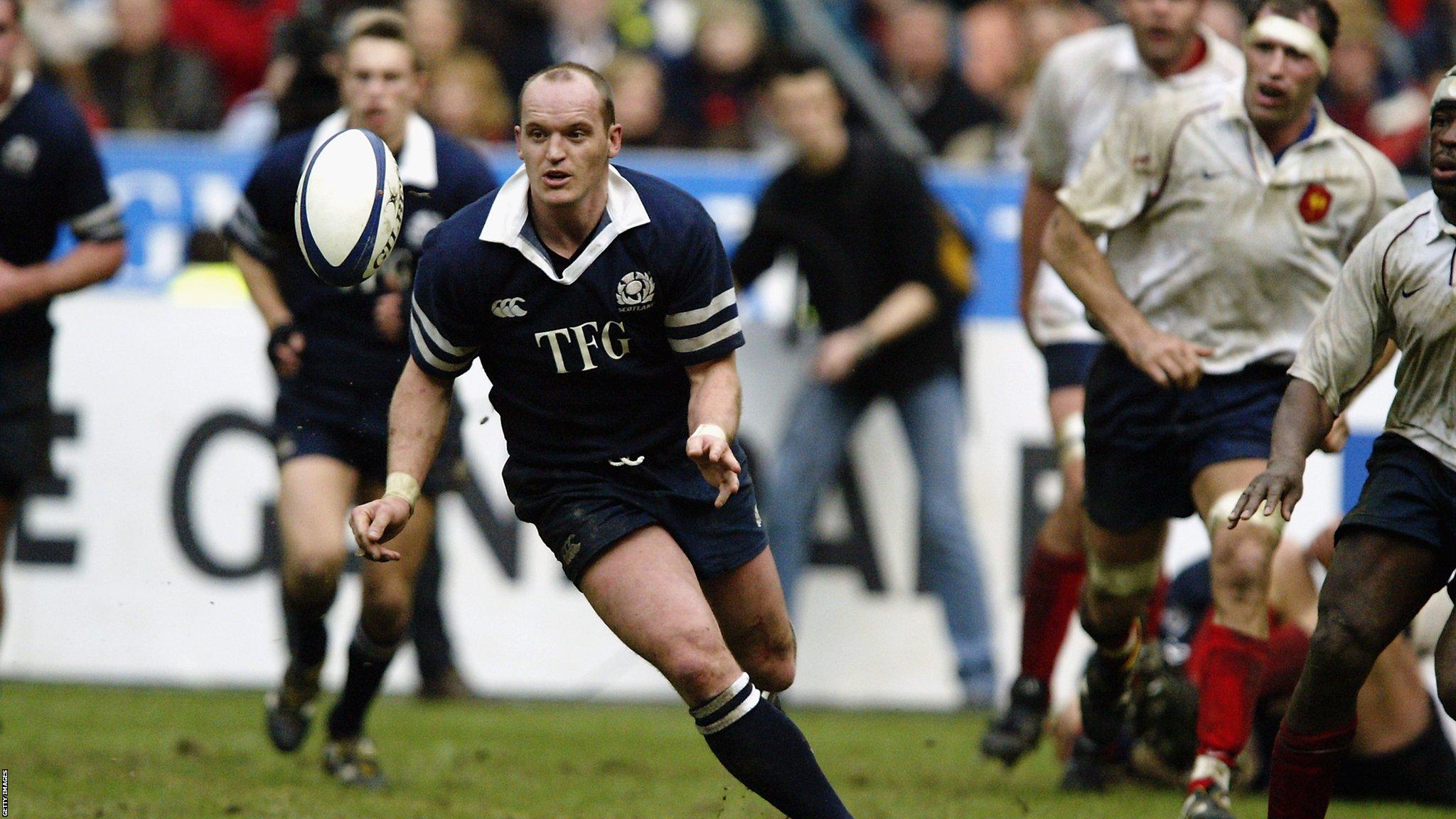
Townsend played for Scotland in the 38-3 defeat by France in Paris in 2003
Six Nations: Scotland v France |
|---|
Venue: Murrayfield Date: Sunday, 13 March Kick-off: 15:00 GMT |
Coverage: Live on BBC One Scotland, commentary on BBC Radio Scotland, TV & radio coverage on BBC Sport website and BBC Sport app, plus live text commentary. |
He was in his own private world on that opening day of the French championship of 1998, Gregor Townsend composing his thoughts in the Brive changing room as his new team prepared to play Colomiers.
For Brive, it was a home game, therefore the Stade Municipal des Sports was both packed and expectant. Brive didn't lose home games. They weren't allowed. That was the law. Townsend had just moved to France from Northampton. It was the summer after the magnificent Lions series win in South Africa and everything in his world was right.
Then his karma was interrupted by fighting.
The French experience
"Five minutes before we went on the field, I looked up and a fight broke out on my right and on my left. I can still picture it," remembers Townsend.
Six Nations schedule | ||
|---|---|---|
Date (All times GMT) | Fixture | Coverage |
Sat, 12 Mar (13:30 KO) | Ireland v Italy | ITV and BBC Radio |
Sat, 12 Mar (16:00 KO) | England v Wales | ITV and BBC Radio 5 live |
Sun, 13 Mar, (15:00 KO) | Scotland v France | BBC One and BBC Radio |
"Our coach was Laurent Seigne (a former prop from the old school) and he was pushing the forwards against the wall and the experienced ones were pushing him back and it was head-on-head and shirts ripped and blood.
"I was sitting there thinking, 'Right, OK, that's what the forwards do, fair enough.' Before our next home game, Seigne talks to myself and my partner in the centre, the Argentine, Lisandro Arbizu. Seigne says, 'Today, you are forwards'.
"He shouts for both of us to get on the floor and for our pack to run over the top of us so we knew what it felt like to be at the bottom of a ruck. This was minutes before we played a game. I was lying there, not knowing whether to laugh or cry."
Trois clubs, cinq ans
Laughter is what he does a lot of as he recalls his years in France. He's sitting in a hotel across from Murrayfield, where on Sunday the nation he represented 82 times will host the country he played in for five seasons at three different clubs - Brive, Castres and Montpellier.
He talks about how it all began, this "exit from the comfort zone" as he calls it. Three clubs were interested in signing him - Brive, Bourgoin and Toulouse. His favourite was Toulouse, the club of Guy Noves, the current French coach, and one of the great bastions of world rugby.
Toulouse had two stand-offs - Christophe Deylaud and Yann Delaigue. The idea, as pitched to Townsend, was that they were going to ship out Deylaud and Delaigue to make room for the marquee Scot. Townsend would be Toulouse's 10.
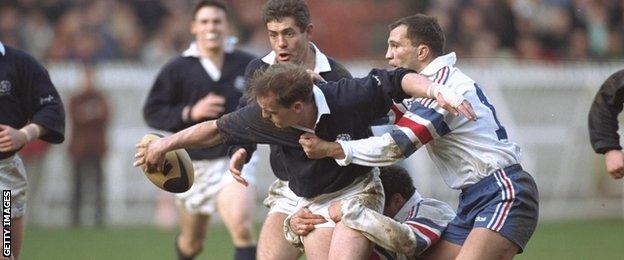
Gregor Townsend passes for try scorer Gavin Hastings in Scotland's win over France at the Parc des Princes in 1995
"I always get upset by the Toulouse thing, because not only did they not offer me a contract in the end but they also said they needed to see footage of me," says Townsend.
"That was a time when you didn't have much footage. All I had was a VHS of me playing for the Lions which our analyst had put together. On that tape was every one of my touches of the ball from South Africa. I said to Toulouse, 'I must get this back because it's a cherished memory', but they lost it."
Un cafe, Monsieur Townsend?
He went to Brive. It was the summer of 1998 and France was top of the football world. The country was buzzing - a thrilling place to be. Thrilling and very, very different.
Townsend hadn't been in Brive for long when Frenchmen started asking about ghosts. "You're Scottish, Gregor," they'd say. "Many castles. And ghosts? You've seen ghosts?"
He dipped into the deepest recesses of his memory and recalled a visit to Dalhousie Castle, a 13th century pile near Edinburgh said to be haunted by the spirit of a lovelorn teenager. "Oh aye," he replied. "Ghosts. Loads of 'em."
Brive was an education. He learned the language, he embraced the culture, he appreciated the welcome he got in the town - and still does. People would invite him in for coffee when seeing him walking down the street.
"It was a proper rugby town," he says. "A quarter of the population would come and watch us play."
He remembers, on days off, driving the two hours to Toulouse with his wife, Claire, where they could watch a non-dubbed movie in the cinema and where a Marks and Spencer's sold Irn Bru.
"We didn't go especially for the Irn Bru, but we'd stock up all the same," he laughs.
The only problem was the rugby. Brive had become European champions that summer but the free-flowing stuff they showed in beating Leicester in the final was the exception rather than the norm. They had the backline to play expansively, but Seigne chose not to. For him, it was all about the combat, which translated as the emotion or, more precisely, the fighting.
Townsend remembers: "Before one match, I saw Pascal Bomati, our winger, with blood pouring from his head - white as a sheet.
"I asked him what happened. He said the coach (Seigne) headbutted him. I said to the senior players, 'Guys, this is not normal' and they said, 'No, no, this isn't half as bad as other clubs.'
"They told me that at Stade Francais they used to do a thing where the coach would put the showers on full blast, switch the lights off and then the players would start punching each other in the dark while getting soaked. That's all stuff from a bygone age, but it was the way it was done."
Soon, there was a changing room referendum on Seigne. The president of the club polled the players about their coach, giving them three options - to vote to keep him, to vote to sack him immediately, to vote to sack him at the end of the season, which was three games away. He lasted the three games (lost all three) and exited. To say the atmosphere in those weeks wasn't great would be to put it mildly.
And so to Castres...
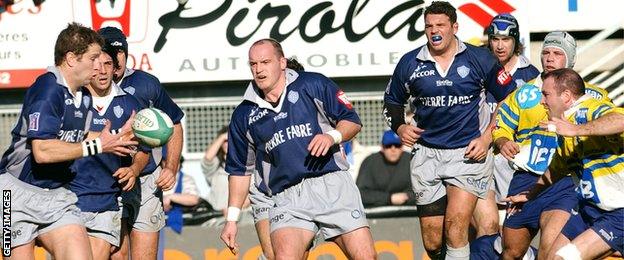
Gregor Townsend passes to Castres team-mate Shaun Longstaff in their Heineken Cup quarter-final against Montferrand in 2002
Townsend moved on to Castres, where things were more settled and more successful. At Brive he had Christophe Lamaison, Philippe Carbonneau and Oliver Magne. At Castres he had Raphael Ibanez, Mauricio Reggiardo, Ignacio Fernandez Lobbe and a name from a little closer to home, Shaun Longstaff.
"We came so close to doing something really special," he says.
"We got to the semi-final of the French championship but the way the draw worked out we had to play Toulouse in Toulouse and so they had 32,000 and we had 8,000 and they beat us. Had we got them at a neutral venue, you never know. I would have loved to have played in a French final. The history of it was incredible. It meant everything to people.
"In my second season we made the semi-final of the Heineken Cup, but got beaten by Munster. I was captain for the European games, which was an honour. Those years in Castres were fantastic.
"I went away from France and then went back again in 2004, to Montpellier. A really good club, really good people. It was an idyllic lifestyle. A house overlooking a vineyard. One of our sons was born while we were there."
Townsend's ties with France continue now that he is a coach and a student of their game.
"French club rugby is transformed," he asserts. "The money and the popularity - they now say that French rugby is more popular than French football, on TV figures and attendances. All the big cities always had a football team, but now they have a rugby team.
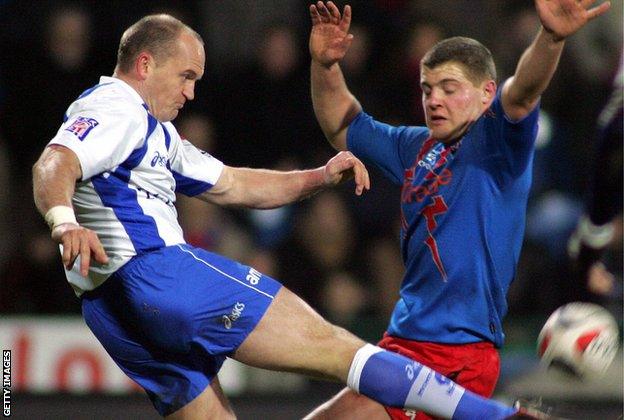
Stade Francais hooker William Benjamin Kayser closes down Townsend when playing for Montpellier, his final club in France
"It looks great on TV when you have full stadiums, but a lot of times it doesn't result in a quality game. Part of that is because of a trend towards size. Big guys running against big guys.
"I think we see the best of French club rugby in Europe, where they play a bit more. The international team? Very physical, very good defence, maybe they're building towards a more attacking game. I just hope they don't unleash it on Sunday."
Homecoming
He talks about Richie Gray and in Gray's story he sees a little of himself. Not the hulking size or the mop of blond hair, of course, but in the journey home from Castres, Townsend's former home which is now home to the big second row.
Townsend understands that journey. "The trips back home were really long," he says.
"I'm not sure if people realise it, but for Richie, there's no direct flight. There's a one-hour drive to Toulouse, then a flight to Paris or London and a two or three-hour wait and then a flight to Edinburgh.
"So he's doing eight, nine or 10 hours of travel every time he comes home - and that's actually quite special because the distance makes you appreciate Scotland all the more. Being selected for Scotland was your only way of getting home during the season. That's the way it'll be for Richie. That trip is long, but it's one you can't wait for."
What Scotland would give for some of Townsend's old genius on Sunday.
- Published10 March 2016
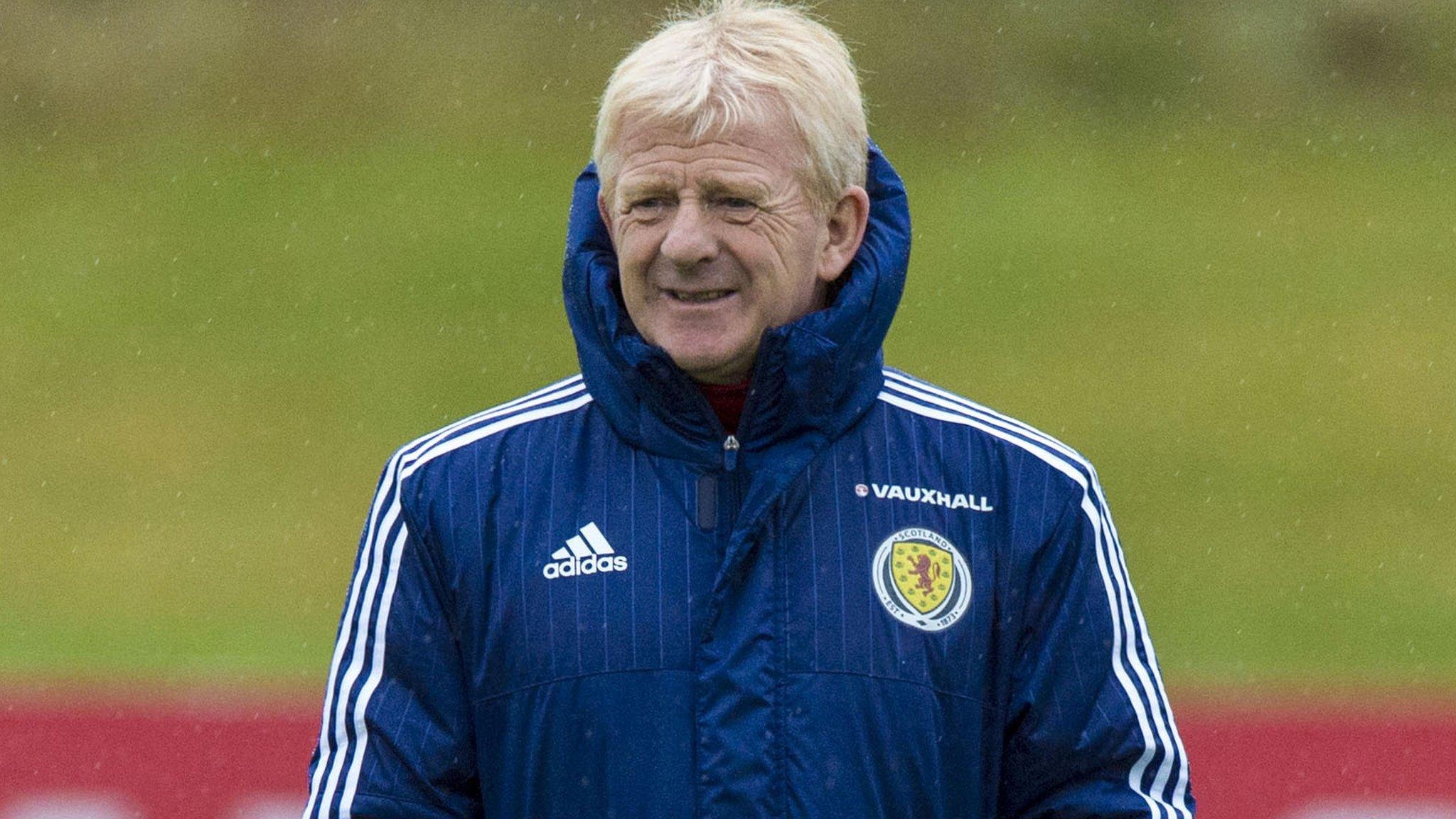
- Published10 March 2016
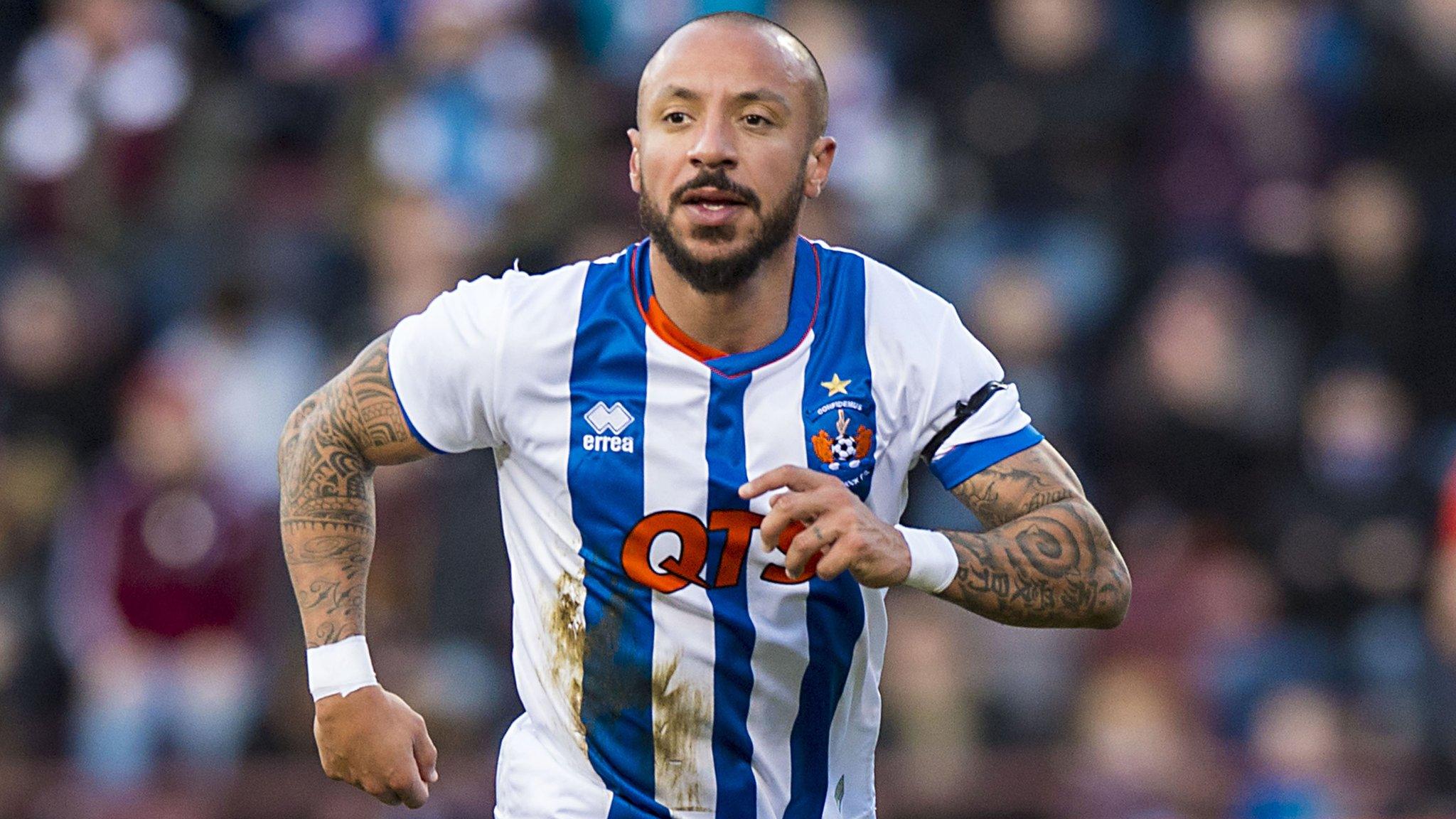
- Published9 March 2016
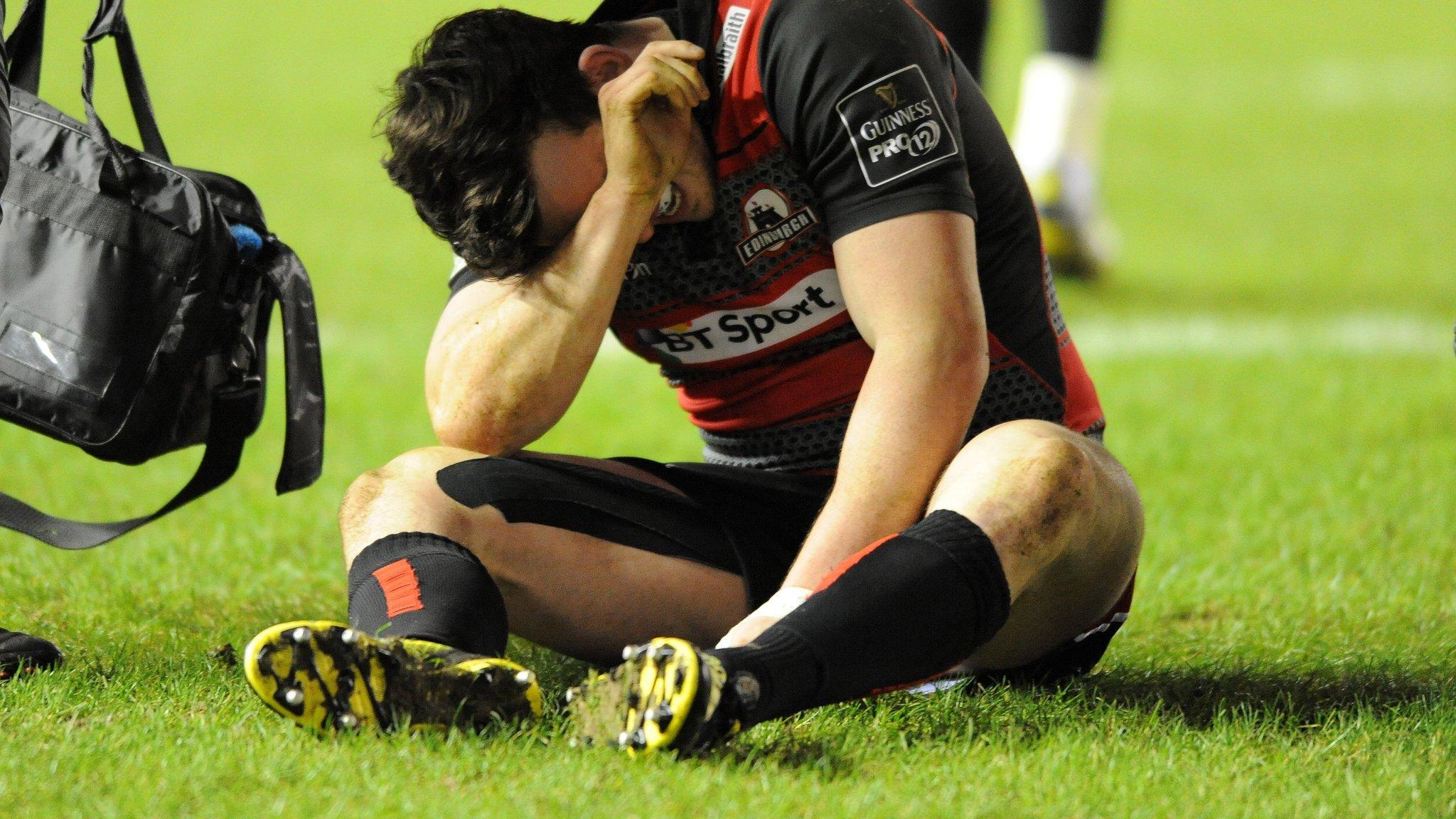
- Published14 September 2016
